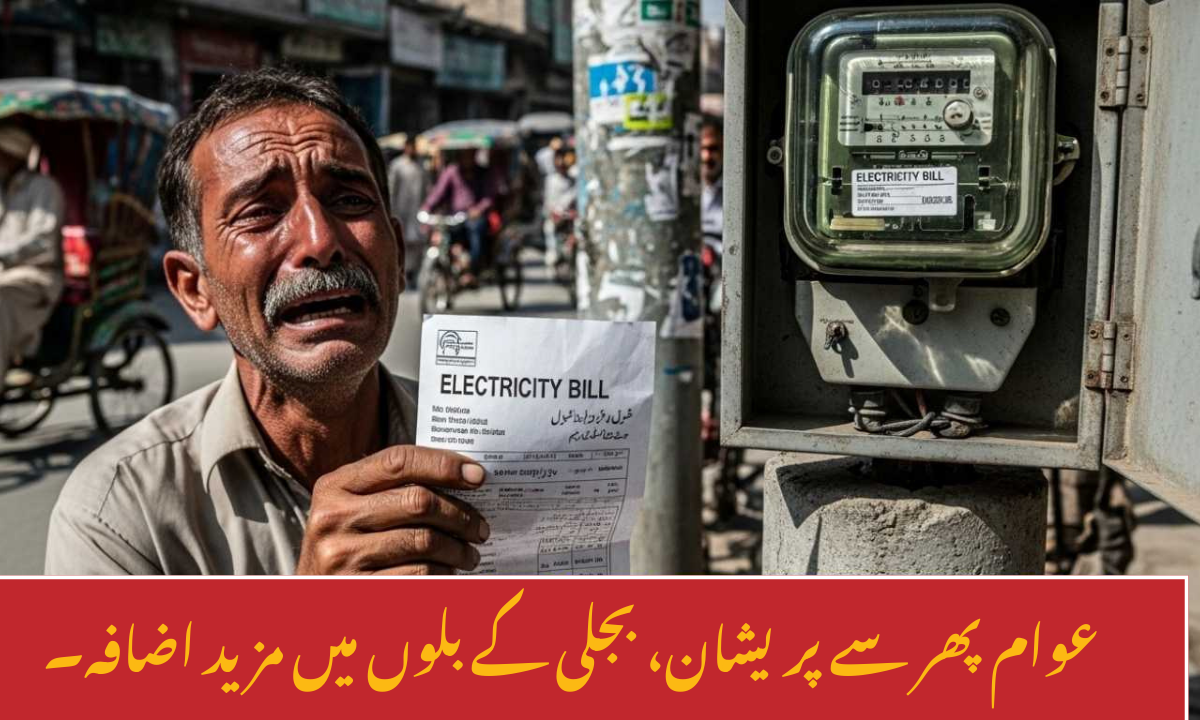Pakistan is facing yet another surge in electricity prices, with the National Electric Power Regulatory Authority (NEPRA) approving a Rs. 0.50 per unit increase for September 2025. While this hike may appear modest, it significantly impacts households and businesses already burdened by high utility bills. The increase in electricity costs is primarily driven by rising inflation, global oil price hikes, and a depreciating rupee. Let’s break down the reasons behind this price hike, its impact, and how consumers can cope with the rising costs.
Why Are Electricity Prices Rising Again?
On August 15, 2025, NEPRA issued a notification announcing the Rs. 0.50 per unit increase as part of the Fuel Cost Adjustment (FCA) for September 2025. This increase is attributed to several key factors:
- Fuel Price Surge: Global oil prices saw a significant 5% rise in July 2025, which has affected Pakistan’s oil-based power plants, escalating fuel costs.
- IMF Conditions: Pakistan’s ongoing economic agreements with the International Monetary Fund (IMF) require implementing debt-recovery surcharges and tariff rebasing, putting additional pressure on electricity prices.
- Circular Debt: The circular debt in Pakistan, amounting to Rs. 2.1 trillion, forces NEPRA to adjust tariffs periodically to stabilize the energy sector.
- Peak Demand: The high use of air conditioners during the scorching summer months led to a 10% spike in electricity demand, contributing to higher tariff rates.
While this increase may seem small, it significantly raises the per-unit cost for electricity, pushing the average domestic tariff to between Rs. 35 and Rs. 65 per unit depending on the consumption slab. This tariff hike affects everyone, with average monthly bills increasing by Rs. 150–200 for a 300-unit household.
Impact on Households and Businesses
The Rs. 0.50 per unit increase will affect millions of consumers, particularly those in the middle and lower-income brackets. The impact is evident across Pakistan’s 240 million population:
For Households
- A household consuming 300 units per month will now see an increase in its monthly electricity bill, ranging from Rs. 10,350–19,350 to Rs. 10,500–19,500.
- Families are already struggling to balance their budgets, with 40% reducing their consumption in response to high electricity costs. Many are forced to cut back on essentials like food and education.
- Despite efforts by some to minimize usage, the hike continues to stretch household budgets, adding another burden in an already difficult economic environment.
For Businesses
- Small businesses are experiencing higher operating costs, ranging from 3-5%. This is particularly challenging for industries like textiles, with Karachi’s textile sector reporting a 7% rise in operating costs due to the increase in electricity prices.
- Many small and medium-sized businesses are struggling to cope with the rising costs of production, and some may even be forced to lay off workers.
Current Electricity Tariff Structure (September 2025)
The tariff structure for electricity consumption has been adjusted due to the recent price hike. Here’s a breakdown of the new rates:
| Consumption (Units) | Price per Unit (PKR) | After Rs. 0.50 Hike (PKR) |
|---|---|---|
| Up to 50 | 4–8 | 4.50–8.50 |
| 51–100 | 12–14 | 12.50–14.50 |
| 101–300 | 16–18 | 16.50–18.50 |
| 301–700 | 24–30 | 24.50–30.50 |
| Above 700 | 38–62 | 38.50–62.50 |
This revised tariff structure means that the cost of electricity will continue to strain household budgets, especially for larger households with higher consumption.
Tips to Manage Rising Electricity Costs
With electricity prices on the rise, it’s essential for consumers to take steps to manage their energy consumption and reduce costs. Here are some practical tips:
- Monitor Usage: Regularly check your meter to stay within lower consumption slabs (under 200 units). By staying within these limits, you could save Rs. 2,000–3,000 monthly.
- Switch to Solar: Investing in a 5kW solar system (costing around Rs. 600,000) can significantly reduce electricity bills by up to 80%. As solar panel prices drop, this becomes a more viable option for long-term savings.
- Avoid Peak Hours: Electricity rates are highest during peak hours (12 AM to 5 AM). By using appliances like air conditioners during off-peak hours, you can avoid paying the high Rs. 41–48 per unit charges.
- Energy Efficiency: Switch to energy-efficient lighting like LED bulbs, which use 50% less power. Unplug unused devices to avoid wasting electricity.
- Report Scams: Be cautious of scams. Always verify any relief schemes or assistance programs through the official NEPRA website or call 118 for details.
What’s Next?
Although the Rs. 0.50 per unit hike is relatively small, it adds to the cumulative strain of Pakistan’s ongoing energy crisis. With over 65% of consumers expressing frustration over rising prices, the need for a long-term solution to Pakistan’s energy issues remains urgent. It’s essential for the government to implement measures that can alleviate the financial burden on consumers and reduce the country’s reliance on imported fuel.
Conclusion
As electricity tariffs continue to rise, it’s more important than ever for consumers to be proactive in managing their energy consumption. By adopting energy-saving practices and considering alternative energy sources like solar power, households and businesses can mitigate the impact of the price hikes. However, the root causes of these price increases, such as fuel surges, circular debt, and IMF conditions, need to be addressed for lasting relief.


















